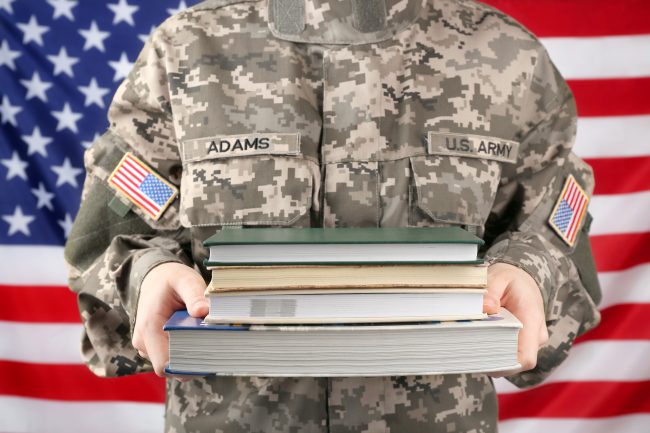The start of your military career doesn’t have to mean the end of your education. In fact, thanks to academic opportunities designed with military and veteran students in mind, you can keep studying even as you’re serving. Here are just a few ways to continue hitting the books as a soldier.
Take Advantage of Assistance
There are many forms of college assistance for servicemembers. You’ve probably heard of the GI bill that can help you pay for tuition and textbooks, but there are also scholarships, fellowships, and reduced tuition programs for military personnel. You can even find schools that award credits for military experience. This can help you graduate faster while also reducing your overall educational costs.
Earn Alternative Credits
In the same vein as the above, there are many ways to earn college credit without actually sitting in a classroom. You can take CLEP tests, for example, which are online exams of college-level subjects that will count as the equivalent of credits if you pass. You can also apply for work or life experience credits in schools that allow career work, military training, flight training, or other forms of service to be counted as credits. Some schools will actually let you put together a portfolio showcasing your background and why it should count towards your degree.
Enroll in an Online Degree Program
Many colleges offer online degree programs with classes and materials that can be accessed anywhere with an Internet connection. If you find a program that works asynchronously, you won’t even need to log on at specific times; you can complete the coursework at your own pace. You might also want to look for an online university for military and veteran students. These universities can have extra assistance for servicemembers in the form of credits, tuition assistance, and counseling for military personnel.
Look Into Continuing Education
Have you finished your service or schooling? Continuing education (CE) is a way to stay on top of new breakthroughs and technologies even after you’ve graduated. Some branches of the military have entire programs for it, including the Army and its Army Continuing Education System, while other programs are open to all. For example, the Veterans Health Administration allows servicemembers to earn generalized “continuing education units” (CEUs) that can be used to maintain professional licensure or certification. They can also be used just to give your resume a boost for post-service employment.
These are just a few ways to continue your education during or after your military service. Whether you’re a new recruit or a seasoned veteran, education should be open, accessible, and useful to all.




